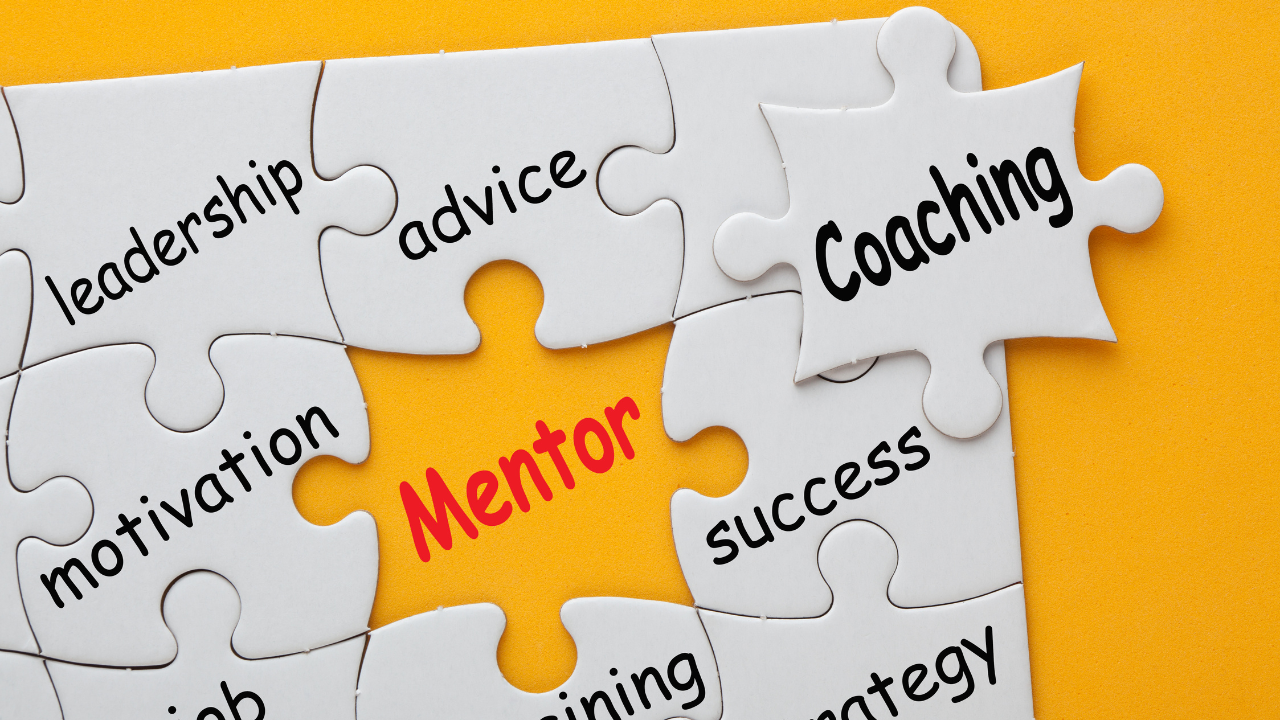How Can Life Coaching Elevate the Quality of Your Personal Relationships?
Share this article:

Life coaching can immensely elevate the quality of your personal relationships. By enhancing communication skills, you'll foster greater empathy and understanding between you and your loved ones. Imagine mastering emotional intelligence, where you navigate feelings with grace, deepening connections. You'll learn to resolve conflicts with kindness, find common ground, and build trust through honest exchanges. Setting shared goals boosts unity and growth, making every achievement together more meaningful. Embracing these skills creates a foundation of mutual respect and emotional support. As you journey through this transformative process, you'll notice a remarkable enrichment in your relationships, promising even deeper insights just ahead.
Listen to the Article
Key Takeaways
- Life coaching builds active listening skills, enhancing empathy and mutual understanding in relationships.
- It aids in mastering conflict resolution techniques to maintain harmony and resolve disputes constructively.
- Coaching boosts emotional intelligence, enabling better management and expression of emotions within personal connections.
- It assists in setting and communicating clear boundaries, fostering respect and trust between partners.
- Encourages setting shared goals, strengthening unity and commitment in the relationship.
Enhancing Communication Skills
At the heart of thriving relationships, effective communication acts as the cornerstone, empowering you to connect deeply and authentically with others. Life coaching offers a path to enhance these vital skills, guiding you to understand and be understood in more meaningful ways. By fostering an environment of active listening, you're not just hearing words; you're engaging with the emotions and intentions behind them. This profound level of empathy opens doors to stronger bonds, as you learn to express your thoughts and feelings in ways that resonate with those you care about.
Moreover, life coaching aids in navigating the complexities of human interaction, teaching you to recognize and adapt to different communication styles. This awareness allows you to approach conversations with sensitivity and respect for diverse perspectives, thereby enhancing mutual understanding. Through this journey, you'll discover the power of constructive feedback and the art of expressing needs and boundaries clearly and kindly.
Embracing these skills transforms not only your personal relationships but also enriches your contribution to the lives of others. As you become a beacon of effective communication, you inspire those around you to strive for deeper, more meaningful connections.
Boosting Emotional Intelligence
Boosting your emotional intelligence is a transformative step towards understanding and managing your emotions, as well as recognizing and responding to the feelings of those around you. It's about developing a keen awareness of your emotional landscape and using that insight to foster deeper connections with others. By tuning into your emotions and those of the people you care about, you're setting the stage for more meaningful interactions.
Imagine navigating your relationships with a heightened sense of empathy, where you're not just hearing, but truly understanding what others are feeling. This isn't just about being nice; it's about cultivating a level of emotional depth that enriches every interaction. It's about seeing beyond the surface and connecting with others on a profound level.
Your journey to enhanced emotional intelligence can start with simple steps like pausing to reflect on your feelings, asking open-ended questions to encourage dialogue, and actively listening to the emotional undertones in conversations. Remember, every step forward is a step towards building stronger, more resilient relationships that can withstand the tests of time and challenge. Elevate your emotional intelligence, and watch as your personal relationships flourish in ways you never imagined.
Mastering Conflict Resolution
Navigating through conflicts in your relationships with grace and understanding can transform challenges into opportunities for growth and deeper connection. When you master conflict resolution, you're not just solving a problem; you're investing in the health and longevity of your relationships. It's about seeing beyond the immediate disagreement and recognizing the value of the person in front of you.
To elevate your conflict resolution skills, consider these strategies:
- Listen actively: Ensure you truly understand the other person's perspective before responding.
- Express yourself clearly and kindly: Use 'I' statements to convey your feelings without placing blame.
- Seek common ground: Focus on what you agree on to build a bridge towards resolution.
- Practice empathy: Try to see the situation from the other person's point of view, acknowledging their feelings and experiences.
Setting Partnership Goals
Why not transform your relationship into a powerhouse of shared dreams and accomplishments by setting partnership goals together? Envisioning a future where both of you're thriving individually and as a unit creates a strong bond that's both aspirational and grounding. It's not just about the big milestones but celebrating the small victories along the way that strengthens your connection.
When you sit down to map out your goals, it's crucial to listen actively to each other's aspirations and fears. This process isn't just about compromise; it's about finding common ground where both partners feel seen and valued. Whether it's financial security, travel plans, or personal development, every goal you set together weaves another layer of unity and commitment.
Building Trust and Intimacy
As you journey toward building trust and intimacy, enhancing your communication skills becomes a cornerstone.
It's about more than just talking; it's learning to listen and understand deeply, ensuring you're both heard and seen.
Resolving conflicts effectively and fostering emotional support are key steps in creating a bond that's not only strong but also resilient and nurturing.
Enhancing Communication Skills
Improving your communication skills can deepen trust and intimacy, transforming your personal relationships in profound ways. When you articulate your feelings and needs clearly, you invite a deeper connection.
Here's how you can start:
- Practice active listening : Show genuine interest in what others say without rushing to respond.
- Express appreciation : Regularly acknowledge the efforts and qualities of others.
- Be open and vulnerable : Share your thoughts and feelings honestly to foster closeness.
- Ask open-ended questions : Encourage meaningful conversations that lead to understanding and empathy.
Resolving Conflict Effectively
Mastering conflict resolution can transform misunderstandings into opportunities for growth and deeper intimacy in your relationships. It's about navigating through disagreements with compassion and empathy, ensuring that both parties feel heard and valued.
When you approach conflicts with an open heart and a willingness to understand the other person's perspective, you're laying a foundation of trust. This trust is crucial, as it allows for vulnerability, which in turn, deepens the connection between you.
Fostering Emotional Support
In the journey of relationships, fostering emotional support serves as a cornerstone in building trust and intimacy, offering a safe haven for hearts to connect and grow. When you actively listen, empathize, and validate your partner's feelings, you're laying the foundation for a relationship that thrives on mutual respect and understanding.
- Actively listen to your partner's concerns without judgment.
- Share your vulnerabilities, fostering a deeper connection.
- Offer encouragement and affirmations, strengthening the bond between you.
- Create a judgment-free zone for expressing emotions and fears.
Establishing Personal Boundaries
Recognizing your personal space is a cornerstone in nurturing healthy relationships; it's about knowing where you end and others begin.
Communicating your limits effectively empowers you and those around you, creating a mutual respect that deepens connections.
Respecting emotional boundaries, in turn, fosters a safe environment where everyone feels understood and valued.
Understanding Personal Space
Understanding your personal space and establishing boundaries is a foundational step in nurturing healthy, fulfilling relationships. Recognizing your need for personal space isn't selfish; it's essential for mental and emotional well-being. By honoring your own space, you set a precedent for how you expect to be treated and how you'll treat others, fostering mutual respect and understanding in your relationships.
- Respect for individuality: Acknowledge and celebrate differences.
- Time for self-care: Prioritize personal well-being to better serve others.
- Clarity in expectations: Clearly defined boundaries enhance relationship dynamics.
- Empowerment: Empowering yourself and others to express needs and limits.
Embrace the journey of understanding your personal space. It's a powerful step towards creating more meaningful, respectful, and mutually beneficial relationships.
Communicating Limits Effectively
Articulating your boundaries clearly is the cornerstone of nurturing respectful and enriching personal relationships. When you communicate your limits effectively, you're not just setting up rules; you're inviting others into a space where mutual respect flourishes.
It requires courage to express your needs and expectations, but remember, it's a profound act of self-care and respect for the relationships you value. By being clear about what you can tolerate, you're teaching others how to treat you, thereby fostering an environment of understanding and empathy.
This doesn't mean you're pushing people away. Quite the opposite; you're paving the way for deeper connections based on genuine respect and understanding. Embrace this journey with an open heart, and watch your relationships transform in the most beautiful ways.
Respecting Emotional Boundaries
Just as you've learned to communicate your limits, it's equally important to respect the emotional boundaries others set for themselves, nurturing a space where empathy and compassion thrive. Acknowledging and honoring these boundaries is a testament to the depth of your understanding and care in relationships.
- Listen actively to understand, not to respond.
- Ask for permission before offering advice or sharing personal opinions.
- Recognize and respect when someone needs space, without taking it personally.
- Celebrate their capacity to set boundaries as a strength, not a barrier.
Embracing these practices enriches the foundation of trust and mutual respect in your relationships. It's a journey of becoming more attuned to the needs and comfort levels of those around you, fostering deeper connections and a harmonious environment where everyone feels valued and understood.
Frequently Asked Questions
What Qualifications Should a Life Coach Have?
You should look for a life coach with certified training, experience, and a deep understanding of human behavior. They'll guide you with empathy, helping you serve others and transform your connections on a profound level.
How Long Does Life Coaching Take to See Results?
Ever wonder how quickly you can transform your life? With life coaching, you'll start seeing changes within weeks, but real, lasting impact unfolds over months. It's your journey to serving others, beautifully evolving.
Can Life Coaching Help With Past Traumas?
Yes, life coaching can help you navigate past traumas by providing support, strategies, and insights to heal and move forward. It's a step towards reclaiming your power and enriching your life and relationships.
Is Life Coaching Effective for Long-Distance Relationships?
Absolutely, life coaching can bridge the distance in your heart, turning miles into mere steps. It's a compass guiding you and your partner to navigate challenges, fostering deeper connections and understanding, no matter the distance.
How Does Life Coaching Differ From Therapy?
Life coaching focuses on setting and achieving goals, while therapy delves into healing past traumas. Both can guide you toward serving others more effectively, by enhancing your personal growth and understanding of relationships.
Connect with Us:
Connect with Us:



